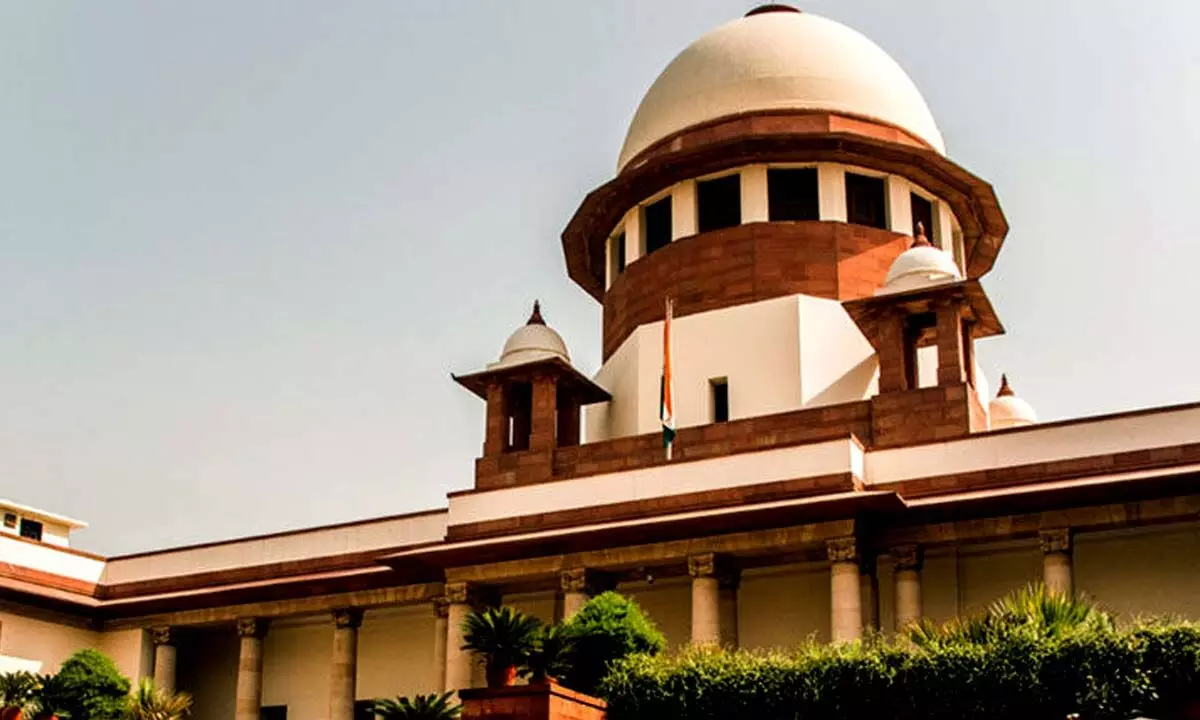PIL in Supreme Court seeks restitution of provision in new penal code akin to Section 377 of IPC
Share :

Supreme Court of India
A public interest litigation (PIL) has been filed before the Supreme Court against the "missing" protection in the newly enacted Bharatiya Nyaya Sanhita
New Delhi: A public interest litigation (PIL) has been filed before the Supreme Court against the "missing" protection in the newly enacted Bharatiya Nyaya Sanhita (BNS) with regard to non-consensual unnatural sex against male, female, transgender and for the bestiality.
The newly introduced Bhartiya Nyay Sanhita (BNS), which replaced the IPC, does not recognise non-consensual unnatural sex, sodomy and bestiality as a penal offence.
Section 377 of the now-repealed Indian Penal Code (IPC) made it a punishable offence with a life sentence or 10-year imprisonment, along with a fine.
The writ petition filed under Article 32 read along with Article 142 of the Constitution raises the grievance against the lacuna in the BNS, which failed to draw a parallel penal provision for offences which were formerly covered under section 377 of the Indian Penal Code (IPC), 1860.
After the implementation of BNS, 2023, from July 1, a void has been created for a provision pari materia to Section 377 of the IPC, said the plea, adding that such an omission constitutes an infringement of the fundamental rights as envisaged under Article 14 and 21 of the Constitution.
"The act of omission on the part of respondent (authorities) leaves the victims of non-consensual unnatural sex in dearth of any legal remedy which would commensurate with the gravity of offence as were earlier defined under Section 377 of the IPC," said the plea filed through advocate Anoop Prakash Awasthi.
As per the causelist published on the website of the apex court, a bench headed by CJI DY Chandrachud will take up the plea for hearing on October 14.
Recently in August, the Delhi High Court had asked the Union government to treat as representation a petition seeking inclusion of offences of unnatural sex and sodomy in the new penal code.
Stating that "no vacuum could exist in criminal laws", the Delhi HC told the Centre to decide the representation expeditiously, preferably within six months.
It had said that though the judiciary may not define the quantum of punishment for an offence, the legislature should include non-consensual sexual acts in the penal statute.
A plea was filed by the Delhi High Court raising concerns over the lack of legal provisions in BNS similar to Section 377 of the IPC, which safeguarded the LGBTQIA+ community. The PIL said that it was necessary to safeguard the queer community, which will be left remediless under the BNS if subjected to non-consensual sexual acts.
In the landmark 2018 Navtej Johar judgment, the Supreme Court unanimously declared Section 377 of the Indian Penal Code (IPC) as unconstitutional "in so far as it criminalises consensual sexual conduct between adults of the same sex" while hearing a writ petition filed by social activist Johar and five others belonging to sexual and gender minority communities.
The five-judge Constitution Bench decriminalised consensual homosexual intercourse by keeping out of the purview of Section 377 of the IPC.
However, it declined to strike down the provision criminalising non-consensual "carnal intercourse against the order of nature with any man, woman or animal".
